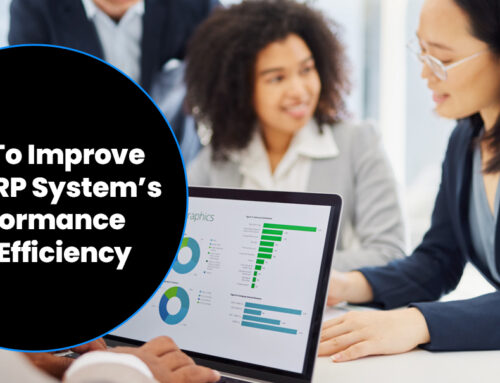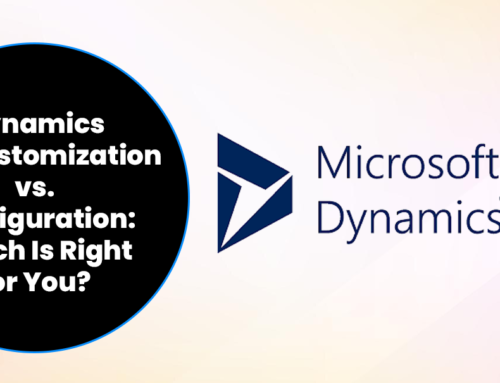
Just a couple of decades ago, enterprise resource planning (ERP) software platforms primarily existed within the domain of the large corporation — big business with a sizable IT budget and an even larger data center. ERP platforms were simply beyond the financial reach of smaller organizations, with significant software licensing fees and data center-related overhead.
But then, things changed. Enter the cloud. The cloud transformed the world of technology in many ways and enterprise resource planning systems were impacted in a big way. Developers created cloud-based ERP platforms: highly scalable and affordable platforms that allowed for software-as-a-service (SaaS) price structuring and accessibility from anywhere with an internet connection. The availability of cloud-based ERP has opened the doors to virtually any organization, from startups to small businesses, mid-size enterprises, and beyond.
If you’re considering an ERP system, you’re in luck because there are many benefits that provide an organization with an operational and strategic advantage.
Benefits of ERP: A Centralized Database
ERP systems feature a single, centralized database that is capable of housing the entire company’s data. This central database is among the ERP platform’s most significant advantages because it allows for the generation of complete and comprehensive analytics that may potentially reflect all of your data — not just a portion of it.
A centralized database is far better than the alternative: data spread across multiple, disparate platforms that often have questionable security and retention practices. Pulling all of that data into a single location allows for greater control and an eagle’s eye view of the organization’s data in your analytics. These analytics and insights are ideal for data-driven decision making too. Company leaders will appreciate comprehensive data insights, as they provide a clear view of the company’s operations, sales, financials, and beyond.
Centralizing your company’s data also allows for more efficient data management. With so many regulations surrounding data privacy — like the EU’s General Data Protection Regulation (GDPR) and the California Consumer Protection Act (CCPA) — effective data management is more important than ever before. Data handling has become an extremely important component of a company’s risk management strategy. Centralizing your data in an ERP platform’s database simplifies matters if you’re shifting from multiple stand-alone third-party platforms to your own controlled data storage environment.
ERP Benefits: Centralized Operations
An enterprise resource planning interface provides the ideal opportunity to centralize a company’s software as the organization shifts from disparate, stand-alone platforms to a single ERP interface. The uniformity and centralization of a company’s software is highly beneficial from an operational and training perspective. It’s also ideal from a security perspective since you will have full control over the platform and its data.
ERP systems feature a variety of modules, including, but not limited to the following.
- Finance and Accounting
- Sales, marketing, and CRM
- Human resources and workforce management
- Business management
- Manufacturing and production
- eCommerce and fulfillment
- Inventory and warehousing
- Supply chain and logistics
- Procurement
- Strategic planning
- Analytics and insights
These are just a few of the modules that are commonly implemented in an ERP system. Each platform is unique and customized to the company’s unique requirements, with the modules and their functionalities determined by the company’s existing and future needs. Your ERP implementation partner will typically work with you to determine what existing third-party platforms you are utilizing and then, they will replicate all of the necessary functionalities within the ERP interface.
When all is said and done, everyone will use a single platform instead of multiple, third-party interfaces, leading to greater control, improved ease of use, and increased productivity.
Benefits of ERP: Customized to Your Company’s Processes and Workflows
Enterprise resource planning systems generally require a fairly lengthy and involved implementation process. But this is one process that is worth the time and effort because it results in a platform that is customized to the company’s unique processes and workflows.
A good ERP implementation partner will take the time to get to know your business and its operations within each division or department that will be using the platform. Then, the system is configured in a way that supports each group’s workflows, processes, and other needs. This degree of customization is rarely achieved outside of a custom software development project, making ERP platforms rather unique in terms of their customizability.
What’s more, the very process of working with an ERP implementation partner to discuss your workflows and processes provides the ideal opportunity for re-evaluation. As you’re identifying and articulating the processes and workflows that your company utilizes, take the opportunity to evaluate for efficiency. Chances are good that you will find flaws and inefficiencies that ought to be corrected. Now is the perfect opportunity to make those modifications. You can work with the ERP implementation partner to ensure that any modifications in process or workflow are reflected in the platform.
A custom ERP platform will bring a tremendous ROI if it’s architected in a manner that accurately reflects your business processes. This underscores the importance of working with an experienced ERP implementation partner who will really dig down during the planning and research phases, getting to know your organization, its objectives, and your business strategy, along with your operations, processes, and the current technology that you’re utilizing. A firm, comprehensive understanding of these points is essential for success if they are going to effectively architect an ERP system that supports your company at an operational and strategic level.
By pulling your digital operations together into a central, uniform software system, an ERP system can bring tremendous benefits. However, the process of actually selecting, implementing, and deploying an ERP platform can be quite complex. At Cox-Little, our ERP experts have extensive experience in all aspects of these enterprise software platforms, so we understand what it takes to see the maximum benefit as you begin using your new ERP system. We invite you to reach out to our team to discuss how Cox-Little can help get your ERP project off the ground and ultimately, to the finish line, with minimal stress and maximum ROI.





